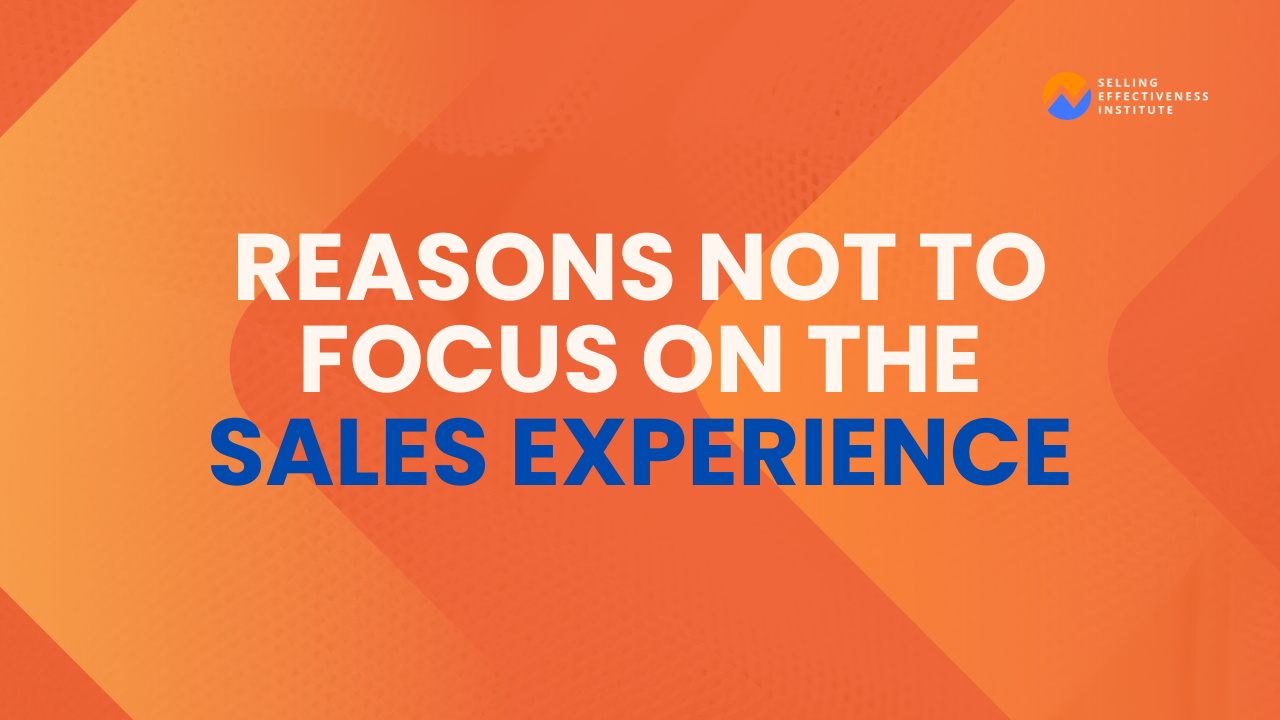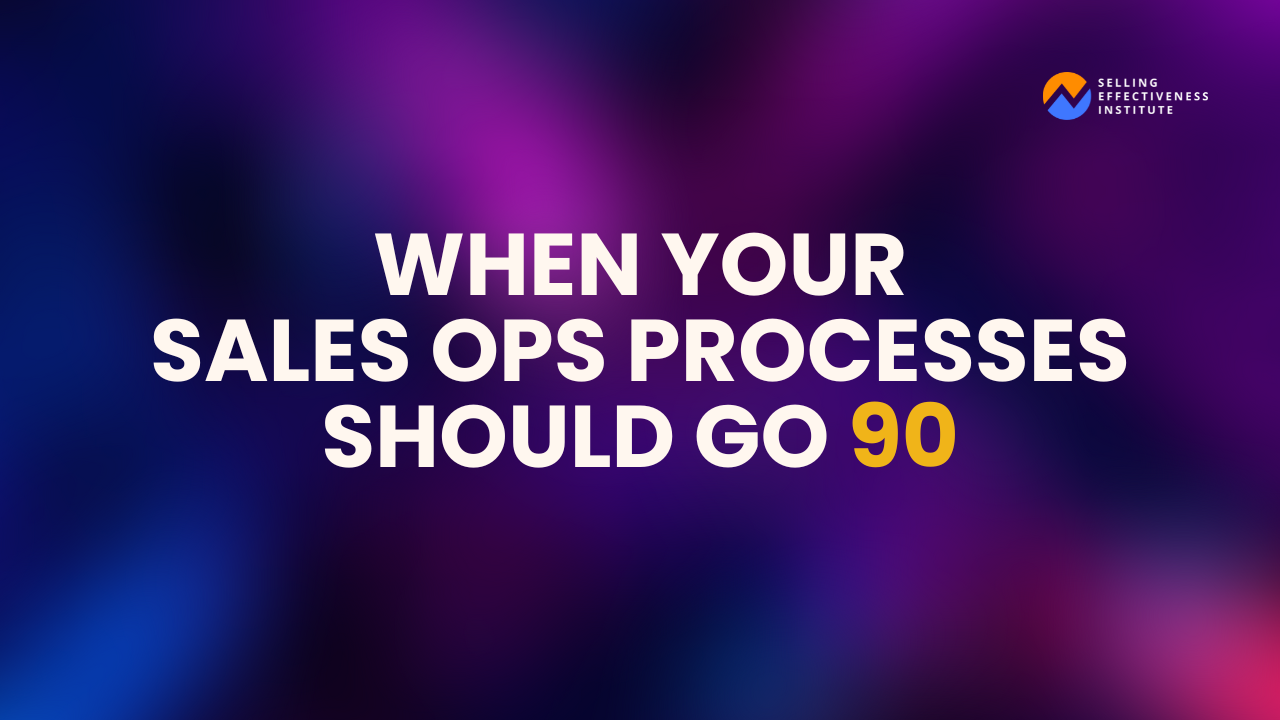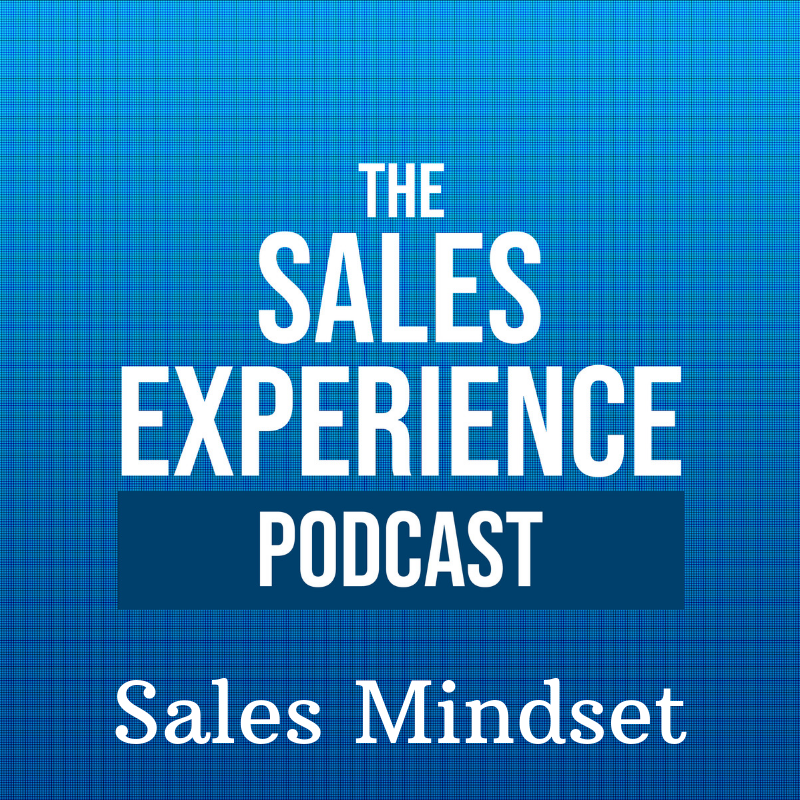Why did you choose to talk about this, and what can listeners expect to learn in this episode?
E64: Sales Mindset Week: Mediocre Sheep and Crabs
While positive is ideal for most people to achieve their goals, and a negative mindset can keep people stuck (although there are times when a negative mindset actually drives people forward faster), there is a scary mindset in the ‘middle’ – mediocrity.
Mediocrity is the silent killer of goals, dreams, and hopes. You could be closing more deals in sales, but you don’t.
This usually occurs from those that you surround yourself with. At work, in a sales team, on the sales floor there will be coworkers who want you to be okay with being ‘okay’ enough.
In this episode I talk about how in sales (and life) – there are Sheep and Crabs.
-
Show Transcript
Welcome to episode 64 of the sales experience podcast. My name again is Jason Cutter.
As you heard in the intro, if you’ve been listening to this show for any length of time, I appreciate it. Thank you. Hopefully you subscribe if you’re brand new, this is an exciting time to be listening to the show.
However, I would suggest listening to episode 61 62 and 63 before this one because it’s all building, but if you’re here now, you’re diving into this episode as the very first one. Welcome. Thank you for being here. We’re talking about mind set.
This is kind of my mind-set. Two Point Oh week I covered mind set week two of the podcast. I tried to cram as much as I could into five 10 minute episodes this week. I’m failing to keep them under 10 minutes. This one, I’m going to try to keep it short because I have one thing I want to talk about.
I’m not going to recap like I did so much in the last episode. Hopefully you did the homework assignment. It was about positivity, so the last episode was talking about the positive mind set.
What happens, what triggers you to be in the positive mind frame? And of course in sales commission checks, bonuses, high five celebration, closing deals, all of that triggers. But what else? What about taking action? How do you feel? Sometimes you have a call, it doesn’t result in a sale, but you know you gave it your all.
You know that if anyone asks you and they say, you know, did you try everything you could. You can say, honestly I did. And even though I didn’t get that sale, I still know I tried my best and I just lost that one. Or they’re not the right prospect or you know, there’s nothing I could have done.
I still feel positive I can go to bed happy tonight cause I know I gave it my all even if I didn’t make that sale. So hopefully you did the assignment. Spend some time thinking about what you’re positive triggers are, your positive mind set, where you really excel and focus on the positive side.
Today I’m going to talk about the middle, which is the mediocre mind set, right? This one is very challenging. This one is super important and it happens to everybody. It’s kind of the negative mind set. It’s kind of the positive mind set, but really it’s about mediocrity. And where mediocrity comes from is our ego.
Again, trying to keep us safe. The mediocre side of our lives where we accept an average level of performance is our brain keeping us safe in our comfort zone. We’re totally okay with that. Where we accept traffic, we understand that’s how it goes.
We accept a certain level of finance or a certain level of relationship where we’re, well, you know, we’re, we’re not blissfully happy, but at least we’re not fighting all the time. So we’re just okay and we’re existing, right?
So, and again, not good or bad, not right or wrong, but most people in some or a lot of categories of their life are leading a mediocre existence and are okay with that because they’ve just come to accretive. And with this being a show about sales and the sales experience, then we’re going to talk about it in terms of sales. The mediocre mind set is such a killer of people.
Sales careers when they either accept being average or they’re okay being in the middle of the pack a, that one can be difficult. And again, I’m going to say this, it’s kind of harsh, but if you’re okay being mediocre, maybe sales isn’t for you.
But that’s just being honest. Maybe there’s something else that would get you more excited that allows you to push aside your ego in your brain in such a way where you’re willing to be uncomfortable. You’re willing to go out and do something that’s uncomfortable in terms of what your strengths are because you know in the moment you’re uncomfortable, but long term.
That’s where the rewards are. It’s outside the comfort zone. Now, what leads to mediocrity? Obvious. Either there’s the ego, there’s all of that. On the outside though, it’s two things. Its sheep and crabs. Those are the two things. Now, again, you may think I’m crazy if you listen to this show. You know I’m crazy. However, let me explain.
So sheep want everybody to be the same, right? There’s a, you have a flock of sheep. They all travelled together. If you’ve ever seen, it’s kind of like a school of fish where a flock of sheep, when a wolf comes, since all the sheep look alike, they’re all white, light coloured.
They all look similar. When they move and they run together, it’s really hard for a Predator or anyone else to pick out one in particular. There’s safety that comes with blending in and being part of the herd and running together with the sheep.
That’s where, and I’m not going to get into the full explanation, but that’s where the term black sheep comes from because black sheep in a sea of white sheep is going to stand out easily targeted by the wolf and black sheep die, right? You don’t see a lot of black sheep in nature, of wild sheep because they’re going to be singled out and then be killed. Same thing with fish.
Fish that go in, schools all looked the same. Anything that stands out or does anything different is going to get spotted by a Predator and Poof, that one’s gone. So the sheep in your life want you to be the same, right?
The term that I used years ago. And you know, it’s a funny one, is sheeple the sheeple in our lives, the sheeple, and the Mash sheeple as a group want everyone to be the same. You know, there’s the group of people that all have I iPhones and they think that iPhones are the best, that they want everyone to be having an using an iPhone because they see that as kind of the, the sheeple product and their safety in that.
So anyone who doesn’t have an iPhone is weird and everyone should be the same cause there’s safety in that, you know, sameness, and same thing. On the flip side is there’s the android people, some of which are very vocal about if you don’t have an Android, you’re an idiot.
Because they want everyone to be the same because there’s safety in that sameness. And so watch out for the sheeple in your life, especially if they’re mediocre sheeple because what they want is for you to be the same and either unhappy about politics or unhappy about finances or unhappy in relationships that sometimes you have cheapo in your life who they’re unhappy in the relationship.
They want you to be the same as well, and that’s what they focus on is everyone being the same, buying the same stuff, doing the same things, and so sheeple in the sales career can be very dangerous because they want you to be the same.
They want you to blend in whether that’s good or bad. Hopefully if it’s good, you’re going to rise to the occasion. With that, that’s generally not where the sheep hang out. It’s not to be awesome and amazing. It’s to blend in and just exist. Then on the other side of this conversation is the crabs. Now with crabs.
What’s interesting is if you’ve ever caught crabs, and I’ve seen videos of this where let’s say like the, crazy Alaskan crab fishermen, they’ll catch all of these crabs and they’ll put them in one big holding tank, right on those ships where you see like on dangerous catch, they’ve got all these crabs, just hundreds, thousands of crabs in this holding tank.
The video underwater that I’ve seen, the crabs will kind of walk all over each other and stand over each other. And then every once in a while some crabs will go towards the middle seeing the light and thinking that’s the way to escape.
And so they kind of pile up and one of the crab reaches up to try to escape. And then what happens is another crab sees that they’re escaping and pulls them down as they’re trying to escape. And everyone’s pulling each other down.
So instead of supporting everybody on getting out and one of those like tough murder, crazy ass walls, where the only way to get up and over that wall is for people to do a human chain and drag each other up in a winning way. Instead, crabs drag each other down because they don’t realize by doing that nobody’s going to win and they’re all going to be a, you know, killed and yummy with butter.
So they don’t realize that. And that’s what happens in our lives. There’s people who are crabs. So when you start doing well, they see that as a threat to them and their ego and their comfort zone.
And they will bring you down. If you’re happy in a relationship and you’ve got a crab in your life who’s negative in their relationship, you know, they’ll be pointed, well, what about this and what about that? And they’ll try to poke holes in your happiness.
They’ll try to drag you down because there’s some safety and comfort and being either mediocre or unhappy. And so you’ve got to watch out for those crabs in your life, especially on the sales floor. And again, I’m talking big picture life, but specifically for sales, because when you’re on the sales floor closing lots of deals, your names on the whiteboard or it’s on the TV, you’re ringing the bell or the Gong, you know, whatever that might be.
You’re feeling good. The crabs in your office are going to bring you down. They’re going to tell you that, oh, you’re on a lucky streak, or, oh, you can’t sustain this.
Or last week you weren’t that good. So likely this is just a fluke or whatever. Those crabs are going to get in your head to try to drag you down and justify their mediocrity. They’re losing their state of where they’re at and their unhappiness and their negative mind-set.
So keep in mind, watch out for the sheep and the crabs who are trying to keep you mediocre. If your goal is to win, if your goal is to excel, be happy. Leverage your strengths, win at whatever you’re doing, whether it’s sales or anything in life, and watch out for the sheep and the crabs and being mediocre.
All right, your homework assignment is what I want you to do. And I talked about these two crazy animals is I want you to think about journal, talk to other people, and explore those in your life. Let’s say specifically with sales in your office.
Could be co-workers, could be managers, leaders, whatever, that are sheep and that are crabs. The ones who are trying to keep you down, pull you down, keep you the same, whatever that is that are not supportive and helping you in who are they? What do they generally do, and is that helping you get to where you need to be or who should you basically spend less time with?
Because that’s the important part. All right. That’s it for this episode. Thank you so much for listening. Super Fun, having a lot of fun with this. I know it’s a lot of information trying to pack in here. Hopefully you’re getting some value from it.
Always, remember that everything in life is sales and people will remember the experience you gave them.
Become a Certified Authentic Persuader
Get the ebooks to help you close more deals
Visit
Selling Effectiveness for more tips and get help
Follow Jason on LinkedIn
Or go to Jason’s HUB – www.JasonCutter.com






Phone: (239) 206-1919 | Email: info@sellingeffectiveness.com
Copyright © 2023 Selling Effectiveness Institute. All rights reserved.







